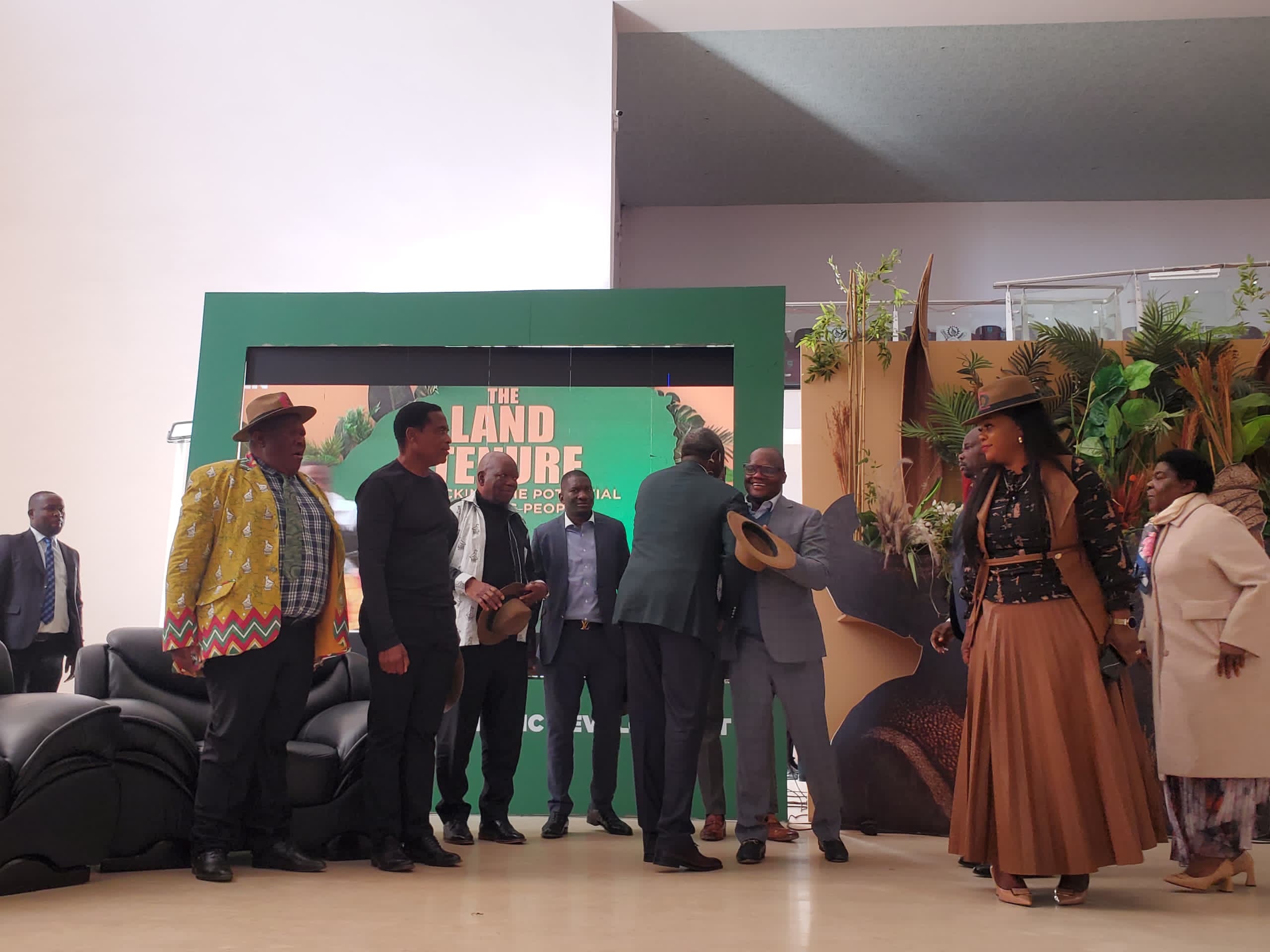By Edward Makuzva
Zimbabwe is undergoing a transformative shift where land reform, digital innovation, and gender empowerment converge.
Revolutionizing Land, Empowering Women, and Building a New Zimbabwe captures this bold agenda—one that gives women greater access to land, uses technology to streamline tenure systems, and repositions land as a pillar of dignity, identity, and economic growth.
This transformation goes beyond technology—it’s about restoring dignity, empowering communities, and redefining the future through land and opportunity.
Minister of Information Communication Technology and Courier Services, Hon. Tatenda Mavetera, emphasized the importance of embracing digital platforms to drive national development and youth empowerment.
Minister Mavetera was speaking at the 2nd edition of Land Tenure Conference in Bulawayo this Wednesday where she revealed that at the center of this revolution is a bold vision articulated by His Excellency, President Dr. Emmerson Mnangagwa , who has emphasized that “the application of ICT innovations is the game changer required in the agricultural industry and associated sectors.”
She added that his message is clear: ‘land in Zimbabwe is more than just an economic asset—it is a living symbol of heritage, pride, and opportunity.’
Digital Land: The New Frontier
She emphasized that digitalization goes beyond technology—it’s fundamentally about people. “As we strengthen land tenure systems, we must also embrace inclusive reforms that empower women with digital skills, build digital capacity among our youth, and honour our liberation war veterans with dignity,” the minister said.
Furthermore, “Under President Mnangagwa ’s leadership, Zimbabwe has embarked on a sweeping reform to digitize land tenure systems—a move that could redefine access, ownership, and dispute resolution for millions.
Moreover, “From a national digital land registry to a cutting-edge e-titling platform, the aim is to make land ownership processes transparent, efficient, and inclusive. Technologies like GIS mapping and remote sensing are being deployed to provide accurate parcel identification and resolve disputes that have lingered for generations.
“We want a system where no one and no place is left behind and land must be accessible not only to the elite but to every Zimbabwean especially women”, Minister Mavetera explained.
Empowering Women Through Land and Tech
She highlighted that women, who make up over 52% of Zimbabwe’s population and form the backbone of its agricultural sector, are being placed at the heart of these reforms.
Minister Mavetera added that for decades, land ownership among women has been limited by cultural, legal, and economic barriers. But now, the government is using digital technology to close the gender gap.
“Through USSD and SMS platforms, women in rural areas are receiving education on land rights, titling procedures, and application processes—all in the palm of their hands.
” Community officers are being trained specifically to assist women in navigating digital systems, and local women’s groups are being engaged as key partners in this drive.
“A groundbreaking initiative—the 1.5 Million Coding Program—aims to equip women, war veterans, and youth with essential digital skills. “This isn’t just about giving land—it’s about giving the tools to manage, protect, and thrive on that land,” said the ICT Minister.
Youth Inclusion: Cultivating a New Generation of Agripreneurs
ICT minister reaveled that in a country where youth unemployment remains a challenge, the digital land reform also includes online land allocation portals and e-learning platforms for agripreneurship.
“These platforms offer start-up support, mentorship, and access to finance, ensuring that young people are not just landowners but innovators and wealth creators.
“Digitalization must reach the youth because they are the future custodians of our land,” noted the Minister. By integrating technology with agriculture, Zimbabwe aims to transform traditional farming into scalable, tech-driven enterprises”, she added.
Connectivity, Payments, and Digital Inclusion
On the issue of Connectivity, Payments and Digital Inclusion, Minister Mavetera added that the government is also expanding digital infrastructure to support electronic services, digital payments, and financial inclusion in rural areas.
In addition to plans include community internet hubs, mobile payment gateways for land transactions, and inter-literacy programs to ensure even the digitally inexperienced can participate in the new economy.
“This is not just about technology,” emphasized President Ngagwa. “This is about people. This is about honoring our veterans with dignity, empowering our women with opportunity, and equipping our youth with tools to build a resilient Zimbabwe.”
A New Chapter for Scamble—and the Nation
She said the digital dawn is more than a technical upgrade—it’s a social revolution. As paper files give way to digital ledgers, and as women log in to check land application statuses instead of waiting for dusty verdicts from far-off offices, the spirit of transformation is undeniable.
Zimbabwe, once divided by inequalities of access and opportunity, is now moving toward a model where every citizen has a stake, a voice, and a digital key to the future.
President Mnangagwa also saying “Nothing can celebrate being Zimbabwean without talking about land.” Now, Zimbabweans are not just talking—they are owning, innovating, and thriving.
Benefits of Freehold Land Tenure Title Deeds are as follows:
Ownership security, Investment incentives, Marketability, Access to credit, Long term planning, Inheritance and legacy, Autonomy and Control, Economic Development, Encouragement of Sustainable Practices and Community Empowerment.

